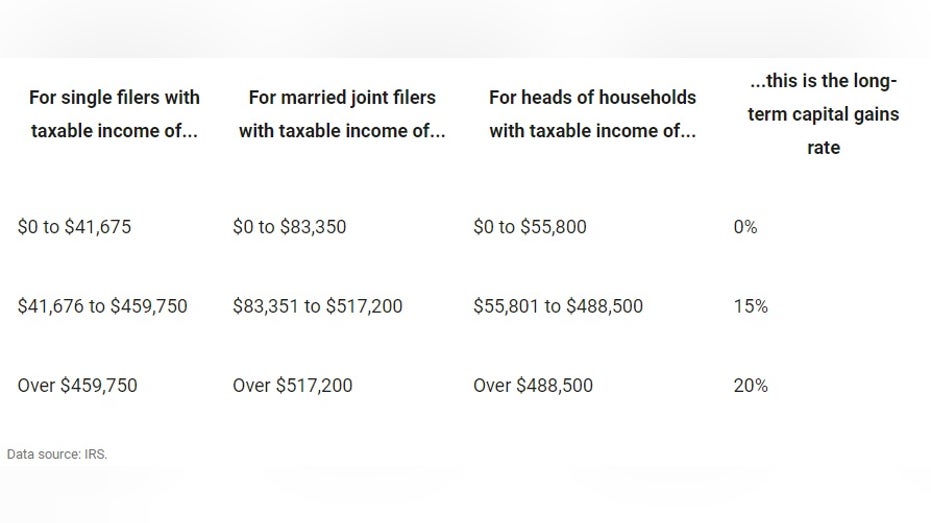How will Amazon's stock split impact my tax returns?
A stock split in itself won't require you to report any income on your tax return
Taxes made easy for newlyweds and new parents
Sponsor Content: Tax advice for recently married couples and new parents filing in 2022
E-commerce giant Amazon has finally pulled the trigger on plans to do a 20-for-1 stock split this year. That means you'll receive 19 extra shares for every one share of Amazon stock in your portfolio. If you currently have two shares of Amazon stock, you might be jumping for joy when you notice 40 shares in your account after the big day.
Before you get too excited, we'll explain how a stock split works and how it could affect your taxes.
AMAZON'S 20-FOR-1 STOCK SPLIT: WHAT TO KNOW
Is a stock split good?
Although it may appear that you've hit the jackpot when you hear about a stock split, it isn't as glamorous as it sounds. You'll receive additional shares of Amazon in your account but the overall value of your shares won't change.
Let's say you owned one share of Amazon stock valued at $3,000 before the split. After a 20-for-1 stock split, you now own 20 shares of stock that are worth $150 per share. The total value of all your shares will still be $3,000.
Stock splits may not have an impact on the value of your shares but they are a great way to entice more people to invest. Instead of paying $3,000 for a share of Amazon, investors will have a chance to own a whole share for $150. If the four-figure stock price kept you from owning a whole share of Amazon in the past, you'll have a chance to join the club after the stock split.
What you should know about taxes
Relax. I'm not about to throw thousands of tax considerations and forms at you. Stock splits are tax-friendly. Because you don't make any money from a stock split in itself, you don't have to cough up any money to the IRS.
Let's go through the entire flow of events so you can understand why stock splits are not taxable.
- March 9, 2022: Amazon filed a Form 8-K announcing its intentions to do a 20-for-1 stock split.
- May 25, 2022: Shareholders vote on the stock split at the 2022 Annual Meeting of Shareholders.
- May 27, 2022: Shareholders must be on record by this date to join the stock split.
- June 3, 2022: Amazon will give investors 19 extra shares for every one share of stock held.
- June 6, 2022: This is the day you can start buying whole shares of Amazon at a reduced price.
As you can see from the timeline above, you won't be entitled to extra money because of the stock split. Therefore, you don't have to report this on your taxes. There's nothing mentioned above that would sound off the alarm and make the stock split a taxable event for shareholders.
GET FOX BUSINESS ON THE GO BY CLICKING HERE
Selling your shares may come at a cost
A stock split in itself won't require you to report any income on your tax return. However, selling Amazon stock before or after the split is a different story.
Let's say you buy a share of Amazon stock before the stock split. Your one share of stock turns into 19 additional shares because of the 20-for-1 stock split. If the stock goes up and you decide to pull the trigger and sell half your shares immediately following the split, you'll be on the hook for short-term capital gains taxes. Those tax rates can be as high as 37% if you're a high earner.
If you hang on to your shares for over a year before selling, you'll have a chance to unlock the long-term capital gains rates. Investors enjoy capital gains rates because they can get a deal on their tax bill. Below are the 2022 long-term capital gains rates in case you're thinking about pressing the sell button.

Data Source: IRS (Motley Fool)
Your next move
If you already own shares of Amazon, you will wake up to additional shares in your account in June if the stock split goes through. The best part is that you don't have to do any legwork to gain access to the shares. Your brokerage will take care of the logistics while you celebrate what's ahead for this tech behemoth. On top of that, you won't receive a tax bill from the IRS because of the stock split. If you believe in Amazon's future potential, it won't be a bad idea to hang on to all your shares and cheer on the company's growth.
CLICK HERE TO READ MORE ON FOX BUSINESS
*Stock Advisor returns as of March 3, 2022
John Mackey, CEO of Whole Foods Market, an Amazon subsidiary, is a member of The Motley Fool’s board of directors. Charlene Rhinehart, CPA owns Amazon. The Motley Fool owns and recommends Amazon. The Motley Fool has a disclosure policy.




















